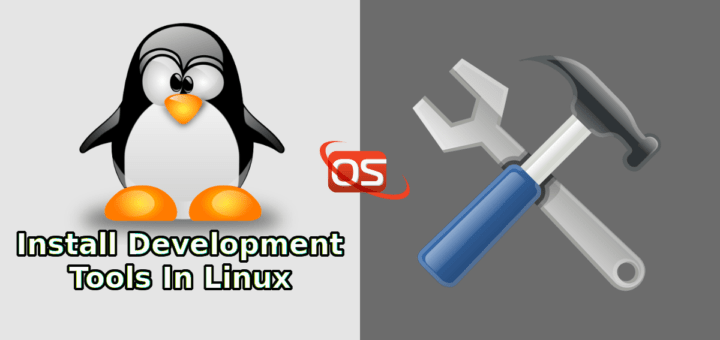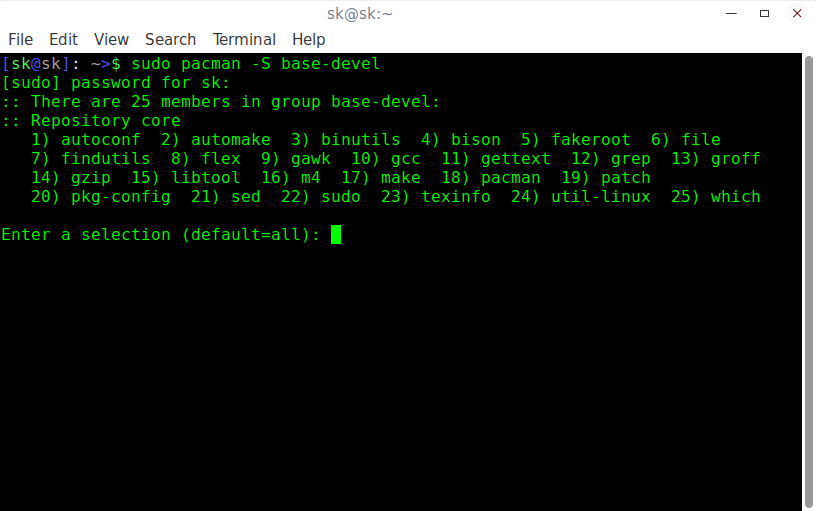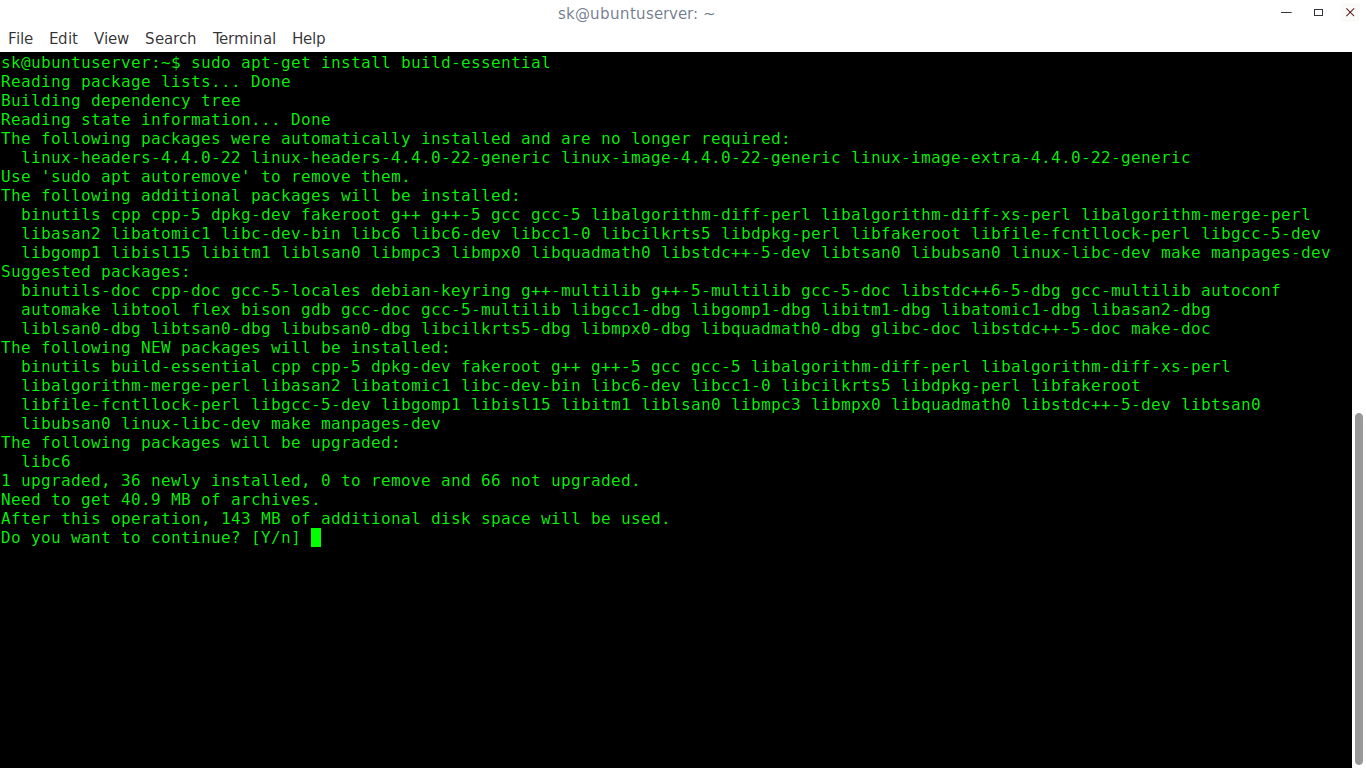How To Install Development Tools In Linux
2017-01-08 14:04
344 查看

In this brief tutorial, we will be discussing how to install development tools in popular Linux distributions like Arch Linux, CentOS, RHEL, Fedora, Debian, Ubuntu, and openSUSE etc. These development tools includes all necessary applications, such as GNU GCC C/C++ compilers, make, debuggers, man pages and others which are needed to compile and build new softwares, packages.
Download – Free eBook: “Bootstrap Programming Cookbook”
Install Development Tools In Linux
The developer tools can be installed either individually one by one or all at once. We are going to install all at once to make things much easier.1. Install Development Tools In Arch Linux and derivatives
To install development tools in Arch Linux and its derivatives like Antergos, Manjaro Linux, just run:sudo pacman -Syyu
sudo pacman -S base-devel
There are 25 members in the Arch Linux development tools group, such as,
autoconf
automake
binutils
bison
fakeroot
file
findutils
flex
gawk
gcc
gettext
grep
groff
gzip
libtool
m4
make
pacman
patch
pkg-config
sed
sudo
texinfo
util-linux
which
Just hit ENTER to install all of them.

2. Install Development Tools In RHEL, CentOS, Scientific Linux, Fedora
To install development tools in Fedora, RHEL and its clones such as CentOS, Scientific Linux, run the following commands as root user.yum update
yum groupinstall "Development Tools"
The above command is going to install all necessary developer tools, such as:
autoconf
automake
bison
byacc
cscope
ctags
diffstat
doxygen
elfutils
flex
gcc/gcc-c++/gcc-gfortran
git
indent
intltool
libtool
patch
patchutils
rcs
subversion
swig

3. Install Development Tools In Debian, Ubuntu and derivatives
To install required developer tools in DEB based systems, run:sudo apt-get update
sudo apt-get install build-essential
This command will all necessary packages to setup the development environment in Debian, Ubuntu and its derivatives.
binutils
cpp
gcc-5-locales
g++-multilib
g++-5-multilib
gcc-5-doc
gcc-multilib
autoconf
automake
libtool
flex
bison
gdb
gcc-doc
gcc-5-multilib
and many.

You now have the necessary development tools to develop a software in your Linux box.
4. Install Development Tools In openSUSE/SUSE
To setup development environment in openSUSE and SUSE enterprise, run the following commands as root user:zypper refresh
zypper update
zypper install -t pattern devel_C_C++
Verifying Installation
Now, Let us verify the develop tools have been installed or not. To do so, run:gcc -v
make -v

As you see in the above output, the development tools have been successfully installed. Start developing your applications!
That’s all for today! On behalf of OSTechNix, I wish you a very Happy New Year 2017. May the new year bring new hopes and opportunities for you!
Cheers!!
相关文章推荐
- Linux内核态用户态相关知识 & 相互通信
- Linux进程空间分布 & 上下文
- Linux系统调用
- linux驱动:设备-总线-驱动(以TI+DM8127中GPIO为例)
- linux磁盘浅析
- CentOS 7安装mysql
- linux 如何查找命令的路径
- Linux 重定向
- linux下常用网页查看下载工具--wget
- 为什么你总是学不好Linux技术?这是我的答案。
- linux c 串口编程
- TOP 10 BEST LINUX GAMES RELEASED IN 2016
- 局域网如何通过SSH 2连接上VMware 10虚拟机新装的centOS系统远程登录
- 11款最棒的Linux数据恢复工具发布啦!
- 10 Interesting Linux Command Line Tricks and Tips Worth Knowing
- Linux常用命令发布啦!
- Google Chrome 55 Released – Install on RHEL/CentOS 7/6 and Fedora 25-20
- How to Use Rsync to Sync New or Changed/Modified Files in Linux
- 为什么你总是学不好Linux技术?这是我的答案
- 24 MUST HAVE ESSENTIAL LINUX APPLICATIONS IN 2016
